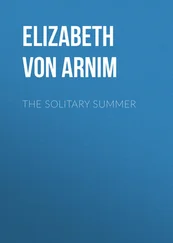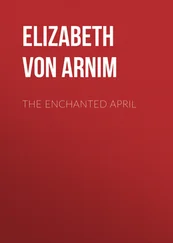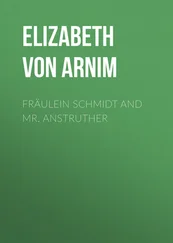Elizabeth von Arnim - Christine
Здесь есть возможность читать онлайн «Elizabeth von Arnim - Christine» — ознакомительный отрывок электронной книги совершенно бесплатно, а после прочтения отрывка купить полную версию. В некоторых случаях можно слушать аудио, скачать через торрент в формате fb2 и присутствует краткое содержание. Жанр: prose_military, foreign_antique, foreign_prose, на английском языке. Описание произведения, (предисловие) а так же отзывы посетителей доступны на портале библиотеки ЛибКат.
- Название:Christine
- Автор:
- Жанр:
- Год:неизвестен
- ISBN:нет данных
- Рейтинг книги:3 / 5. Голосов: 1
-
Избранное:Добавить в избранное
- Отзывы:
-
Ваша оценка:
- 60
- 1
- 2
- 3
- 4
- 5
Christine: краткое содержание, описание и аннотация
Предлагаем к чтению аннотацию, описание, краткое содержание или предисловие (зависит от того, что написал сам автор книги «Christine»). Если вы не нашли необходимую информацию о книге — напишите в комментариях, мы постараемся отыскать её.
Christine — читать онлайн ознакомительный отрывок
Ниже представлен текст книги, разбитый по страницам. Система сохранения места последней прочитанной страницы, позволяет с удобством читать онлайн бесплатно книгу «Christine», без необходимости каждый раз заново искать на чём Вы остановились. Поставьте закладку, и сможете в любой момент перейти на страницу, на которой закончили чтение.
Интервал:
Закладка:
Perhaps I might write a little note—not a letter, just a little note,—on Wednesdays? What do you think? It would be nothing more, really, than a postcard, except that it would be in an envelope.
Berlin, Sunday, June 14th, 1914
Well, I didn't write on Wednesday, I resisted. (Good morning, darling mother.) I knew quite well it wouldn't be a postcard, or anything even remotely related to the postcard family. It would be a letter. A long letter. And presently I'd be writing every day, and staying all soft; living in the past, instead of getting on with my business, which is the future. That is what I've got to do at this moment: not think too much of you and home, but turn my face away from both those sweet, desirable things so that I may get back to them quicker. It's true we haven't got a home, if a home is a house and furniture; but home to your Chris is where you are. Just simply anywhere and everywhere you are. It's very convenient, isn't it, to have it so much concentrated and so movable. Portable, I might say, seeing how little you are and how big I am.
But you know, darling mother, it makes it easier for me to harden and look ahead with my chin in the air rather than over my shoulder back at you when I see, as I do see all day long, the extreme sentimentality of the Germans. It is very surprising. They're the oddest mixture of what really is a brutal hardness, the kind of hardness that springs from real fundamental differences from ours in their attitude towards life, and a squashiness that leaves one with one's mouth open. They can't bear to let a single thing that has happened to them ever, however many years ago, drop away into oblivion and die decently in its own dust. They hold on to it, and dig it out that day year and that day every year, for years apparently,—I expect for all their lives. When they leave off really feeling about it—which of course they do, for how can one go on feeling about a thing forever?—they start pretending that they feel. Conceive going through life clogged like that, all one's pores choked with the dust of old yesterdays. I picture the Germans trailing through life more and more heavily as they grow old, hauling an increasing number of anniversaries along with them, rolling them up as they go, dragging at each remove a lengthening chain, as your dear Goldsmith says,—and if he didn't, or it wasn't, you'll rebuke me and tell me who did and what it was, for you know I've no books here, except those two that are married as securely on one's tongue as Tennyson and Browning, or Arnold Bennet and his, I imagine reluctant, bride, H. G. Wells,—I mean Shakespeare and the Bible.
I went into Hilda Seeberg's room the other day to ask her for some pins, and found her sitting in front of a photograph of her father, a cross-looking old man with a twirly moustache and a bald head; and she had put a wreath of white roses round the frame and tied it with a black bow, and there were two candles lit in front of it, and Hilda had put on a black dress, and was just sitting there gazing at it with her hands in her lap. I begged her pardon, and was going away again quickly, but she called me back.
"I celebrate," she said.
"Oh," said I politely, but without an idea what she meant.
"It is my Papa's birthday today," she said, pointing to the photograph.
"Is it?" I said, surprised, for I thought I remembered she had told me he was dead. "But didn't you say—"
"Yes. Certainly I told you Papa was dead since five years."
"Then why—?"
"But liebes Fraulein , he still continues to have birthdays," she said, staring at me in real surprise, while I stared back at her in at least equally real surprise.
"Every year," she said, "the day comes round on which Papa was born. Shall he, then, merely because he is with God, not have it celebrated? And what would people think if I did not? They would think I had no heart."
After that I began to hope there would be a cake, for they have lovely birthday cakes here, and it is the custom to give a slice of them to every one who comes near you. So I looked round the room out of the corners of my eyes, discreetly, lest I should seem to be as greedy as I was, and I lifted my nose a little and waved it cautiously about, but I neither saw nor smelt a cake. Frau Berg had a birthday three days ago, and there was a heavenly cake at it, a great flat thing with cream in it, that one loved so that first one wanted to eat it and then to sit on it and see all the cream squash out at the sides; but evidently the cake is the one thing you don't have for your birthday after you are dead. I don't want to laugh, darling mother, and I know well enough what it is to lose one's beloved Dad, but you see Hilda had shown me her family photographs only the other day, for we are making friends in a sort of flabby, hesitating way, and when she got to the one of her father she said with perfect frankness that she hadn't liked him, and that it had been an immense relief when he died. "He prevented my doing anything," she said, frowning at the photograph, "except that which increased his comforts."
I asked Kloster about anniversaries when I went for my lesson on Friday. He is a very human little man, full of sympathy,–the sort of comprehending sympathy that laughs and understands together, yet his genius seems to detach him from other Germans, for he criticizes them with a dispassionate thoroughness that is surprising. The remarks he makes about the Kaiser, for instance, whom he irreverently alludes to as S. M.—(short and rude for Seine Majestat )—simply make me shiver in this country of lese majeste . In England, where we can say what we like, I have never heard anybody say anything disrespectful about the King. Here, where you go to prison if you laugh even at officials, even at a policeman, at anything whatever in buttons, for that is the punishable offence of Beamtenbeleidigung—haven't they got heavenly words—Kloster and people I have come across in his rooms say what they like; and what they like is very rude indeed about that sacred man the Kaiser, who doesn't appear to be at all popular. But then Kloster belongs to the intelligents, and his friends are all people of intelligence, and that sort of person doesn't care very much, I think, for absolute monarchs. Kloster says they're anachronisms, that the world is too old for them, too grown-up for pretences and decorations. And when I went for my lesson on Friday I found his front door wreathed with evergreens and paper flowers,—pretences and decorations crawling even round Kloster—and I went in very reluctantly, not knowing what sort of a memorial celebration I was going to tumble into. But it was only that his wife—I didn't know he had a wife, he seemed altogether so happily unmarried—was coming home. She had been away for three weeks; not nearly long enough, you and I and others of our self-depreciatory and self-critical country would think, to deserve an evergreen garland round our door on coming back. He laughed when I told him I had been afraid to come in lest I should disturb retrospective obsequies.
"We are still so near, my dear Mees Chrees," he said, shrugging a fat shoulder—he asked me what I was called at home, and I said you called me Chris, and he said he would, with my permission, also call me Chrees, but with Mees in front of it to show that though he desired to be friendly he also wished to remain respectful—"we are still so near as a nation to the child and to the savage. To the clever child, and the powerful savage. We like simple and gross emotions and plenty of them; obvious tastes in our food and our pleasures, and a great deal of it; fat in our food, and fat in our women. And, like the child, when we mourn we mourn to excess, and enjoy ourselves in that excess; and, like the savage, we are afraid, and therefore hedge ourselves about with observances, celebrations, cannon, kings. In no other country is there more than one king. In ours we find three and an emperor necessary. The savage who fears all things does not fear more than we Germans. We fear other nations, we fear other people, we fear public opinion to an extent incredible, and tremble before the opinion of our servants and tradespeople; we fear our own manners and therefore are obliged to preserve the idiotic practice of duelling, in which as often as not the man whose honour is being satisfied is the one who is killed; we fear all those above us, of whom there are invariably a great many; we fear all officials, and our country drips with officials. The only person we do not fear is God."
Читать дальшеИнтервал:
Закладка:
Похожие книги на «Christine»
Представляем Вашему вниманию похожие книги на «Christine» списком для выбора. Мы отобрали схожую по названию и смыслу литературу в надежде предоставить читателям больше вариантов отыскать новые, интересные, ещё непрочитанные произведения.
Обсуждение, отзывы о книге «Christine» и просто собственные мнения читателей. Оставьте ваши комментарии, напишите, что Вы думаете о произведении, его смысле или главных героях. Укажите что конкретно понравилось, а что нет, и почему Вы так считаете.












